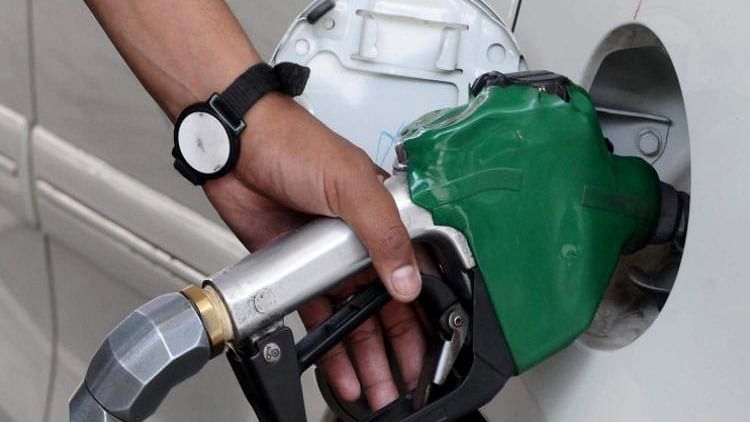The Narendra Modi government is back with its diabolical game on fuel prices. With crucial assembly elections on the way, including in the all-important Uttar Pradesh, alibis are being found to warrant a political intervention and arrest the continuous spike in petrol and diesel prices, conveniently blamed on ‘international’ prices.
Prime Minister’s Economic Advisory Council (EAC) is reported to have suggested to the government to take a ‘political call on taxing oil’, warning it could otherwise build inflationary pressure, with the spill-over impact dampening consumer sentiment, and as a result recovery. The panel told the government that petrol and diesel price cannot be used as cash cow forever.
The RBI had also recently expressed concern over the rising trajectory of international commodity prices, especially of crude, pointing out that together with logistics costs, this posed upside risks to the inflation outlook. Excise duties, cess and taxes imposed by the Centre and states need to be adjusted in a coordinated manner to contain input cost pressures emanating from petrol and diesel prices, the monetary policy committee cautioned.
Inflation has already reached 12.94 percent, highest level since 2013 thanks mainly to fuel and power inflation. Petrol and diesel prices are at all-time high though crude oil fell nearly 2 percent from its highest level this year to $72.23 two days ago.
With petroleum products being kept outside the purview of GST regime, the Modi government has gradually increased the excise duty for a litre of petrol from Rs 9.48 a litre during the UPA regime to Rs 32.90. Similarly, the excise duty for diesel has risen from Rs 3.56 a litre to Rs 31.81 a litre in the same period.
Petroleum Minister Dharmendra Pradhan has shamelessly repeated his skewed logic that the benefit of the high fuel prices is going towards the welfare measures of the government. It was a small mercy from him that he admitted the rising prices are creating difficulties for the public. He blamed the Rs 35,000 crore being spent on vaccination for the hikes. But what about the increases that were effected before the outbreak of the pandemic?
Dharmendra Pradhan’s off the cuff remarks are famous for their frivolousness. In the same breath that he blames rising international crude prices, the minister would attribute the unrealistically high retail prices of petrol and diesel on the need to raise resources for the government to carry out its welfare schemes. There is no explanation as to why link the prices to the movement in the international crude market. The government might as well increase the tax at will, as it can always turn around and say the beneficiaries are the people themselves.
The net result is that the public suffers both ways. Every time there is an increase in the international crude prices, the difference is straightaway passed on to the consumers. That is understandable. But when there is a fall in crude prices, Indian consumers do not get any relief as the government uses the opportunity as a cushion to keep the prices at their high levels or even to increase the prices further.
If the retail prices are raised in keeping with the global prices, these should also be adjusted when crude prices fall. But the government looks at every price decline as an opportunity to make more money, for itself as well as the retailing companies. The government has to keep the retail companies good humoured, because they oblige by holding the prices ahead of elections. This amounts to a dubious hide and seek with the people.
It is in this context that the PM’s Economic Advisory Committee told the government to take a political call on the high petroleum taxes. Crude prices account for only a third of the retail prices, while two parts are on account of taxes, commissions and profit for all stakeholders, except consumers.
The net result is that for the Indian consumers, fuel prices get locked at high levels, irrespective of what happens in the international crude market.


























































































